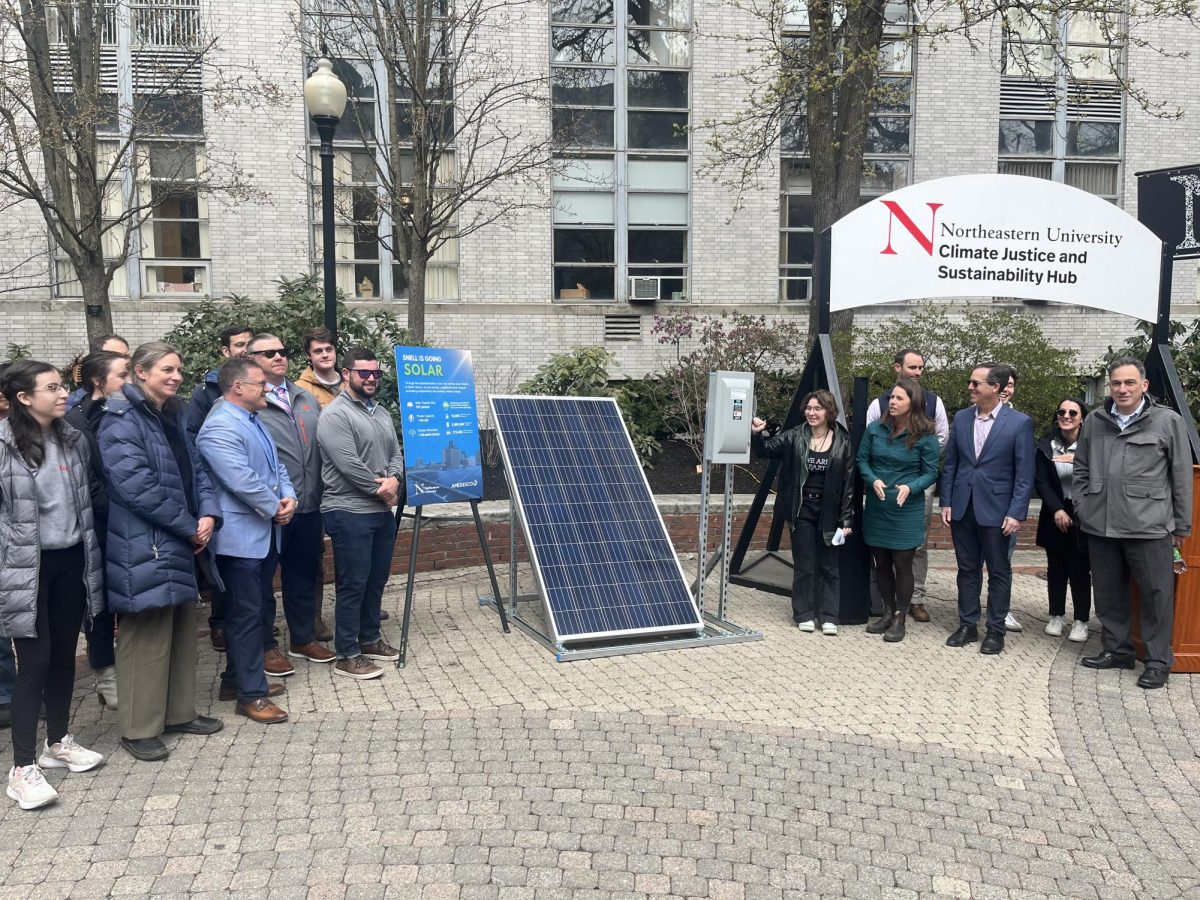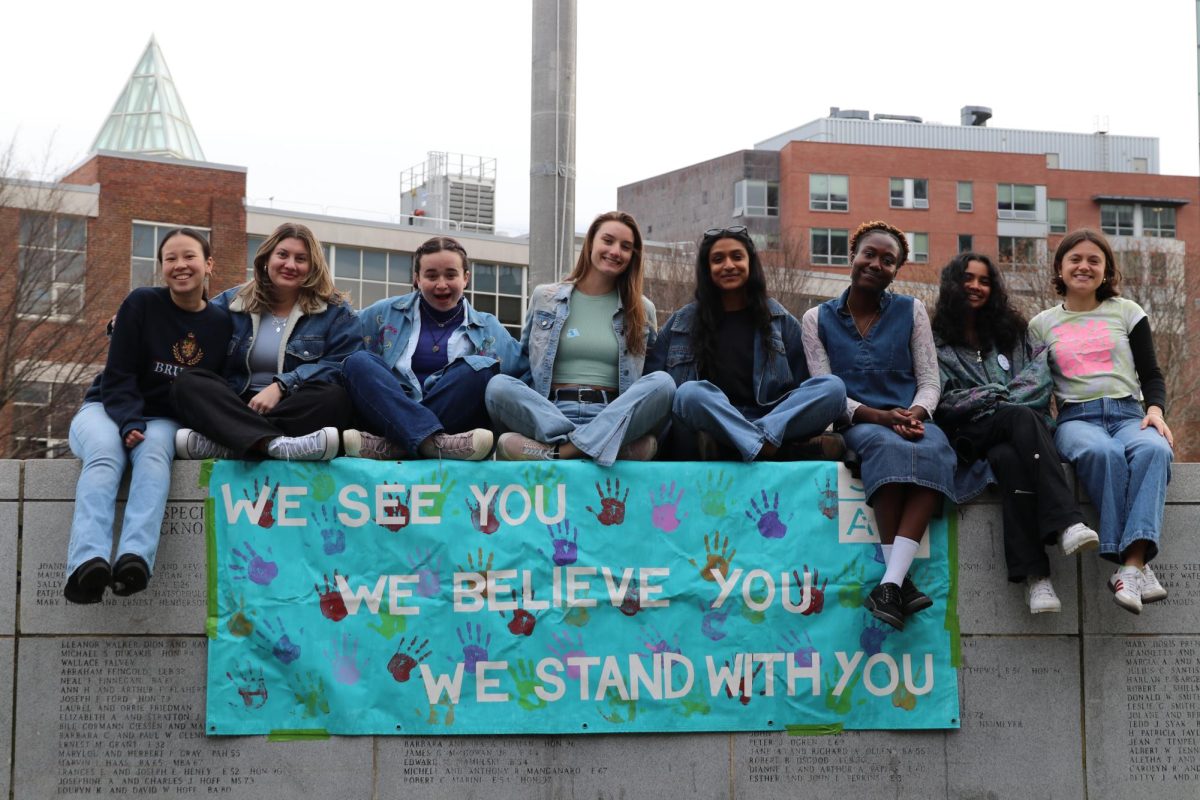
News Staff Photo/Matt Greene
By Mary Whitfill, News Staff
In a question and answer forum hosted by the Student Government Association (SGA) on Wednesday night, Northeastern students gathered with university library, technology and facilities personnel to discuss changes coming to Snell Library, as well as other university-wide improvements that are expected in the coming years.
Welcoming suggestions, complaints and questions, Dean of Libraries Will Wakeling, Chief Information Officer Rehan Khan and Associate Vice President of Planning, Design and Construction Jim Cahill were all in attendance for the first Snell Town Hall. The administrators spent an hour fielding recommendations and criticisms from students, all to help further develop what is known as “Phase Two” of the Snell Library remodel.
“Right now, details about “Phase Two” are not being released because there is no budget information,” SGA Vice President for Academic Affairs Kristina Lopez said. “Once the library gets a budget for what they can do, then they will be able to advertise it. The [Institutional Master Plan] comes out on Tuesday, so we will know some more details then.”
Phase One of the remodel focused on the renovation of the second floor of Snell, now known as the Digital Media Commons (DMC). Creating the DMC brought new, formerly unseen technology into the library, and administrators hope that Phase Two will bring just as many positive changes for students.
“We are working very closely together, the library and information services, to transform the library into a more modern and very technically advanced place which will take some time,” Khan said. “Our prototype was the DMC and we would like to do something similar in other parts of the library as well.”
One of the most common complaints among town hall attendees was a the lack of individual study space within the library and a lack of up-to-date technology within the spaces that do exist.
“The real problem there is that we have massive demand and a limited supply. Our ability to create new study rooms is limited by the structure,” Wakeling said. “As we move to developed space on the lower floors of the library, which is something we are quite interested in doing, one of the decisions we have to make is what the appropriate division of square footage is between open space and enclosed personal study space.”
Many of the decisions regarding the use of space within Snell will depend on the organization and storage of the thousands of print books housed on various floors.
“Much of the lower floor of the library is an enormous, closed, compact shelving unit that holds a quarter of a million volumes,” Wakeling said. “Our plan is to move material that is very lightly used down from the upper floors, put them into this compact shelving and then reuse the space that is cleared for people rather than books. That is our best option when dealing with the existing space.”
Rather than allocating space within the library to the creation of individual study areas, the idea of creating personal space within existing and future buildings was a popular one among the panel of administrators.
“The master plan for the next ten years does have a provision in it that accounts for a lot of ‘mixed use’ space,” Wakeling said.
“That is space that could be allocated for anything, such as classrooms or study space for graduate students or anything else that could fall under ‘mixed use,’ unlike a lot of the buildings we have right now that were designed with single functions in mind. The plans for buildings near Cabot, if it comes to fruition, have masses spaced allocated for this kind of usage.”
Other issues brought up by students included replacing the chairs on the third and fourth floors, incorporating Smart Boards into study rooms in the DMC and providing daily print editions of popular newspapers and magazines. Outside of Snell renovations, students requested expanded print stations, an updated way to read degree audits and reforming the websites and servers associated with class registration.
“I think forums like this provide a really great opportunity for feedback. There is a diverse set of needs and I think that any improvements need to address a variety of needs at the same time,” Student Body President Peter Petrin said. “I hope they follow some of the great suggestions given here tonight and I look forward to seeing what comes next.”
Disclosure: Mary Whitfill is also a student senator in the SGA.













